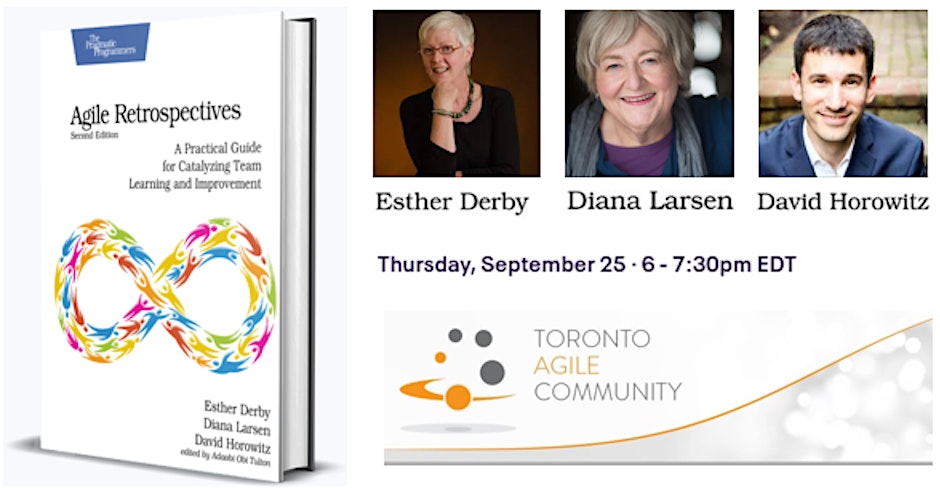Q&A with authors Esther Derby & David Horowitz
September 25, 2025, 6:00 PM
Online Only
Details
– This will be an online-only event
– To register, please visit EventBrite: Online tickets
– Cost is free
Description
In 2006 Esther Derby & Diana Larsen published Agile Retrospectives: Making Good Teams Great, which introduced a five-phase structure for conducting retrospectives intended to help Agile teams reflect on their work, identify improvements, and take action. Agile Retrospectives became a foundational text for Agile coaches, Scrum Masters, and team leads. Shifting ahead to 2024, Esther and Diana collaborated with David Horowitz to publish Agile Retrospectives, Second Edition. This updated edition includes new content on remote and hybrid retrospectives, updated facilitation strategies, deeper coverage of psychological safety, team maturity, and organizational culture, and new chapters on advanced retrospective formats and scaling retrospectives across teams. Please join Esther and David in this panel session to learn more about the second edition.
About the Panelists
Esther Derby draws on four decades of experience leading, observing, and living organizational change. She works with a broad array of organizations, including both start ups and Fortune 500 companies. Based on experience and research, Esther’s approach blends attention to humans and deep knowledge of complex adaptive systems. Esther has been called one of the most influential voices within the Agile communities when it comes to developing organizations, coaching teams, and transforming management. Her work over many years has influenced coaches and leaders across many companies.
David Horowitz is a co-founder of Retrium. Retrium is the world’s leading enterprise-ready platform for Agile retrospectives. He is also a co-author of the 2nd Edition of the best selling book, Agile Retrospectives (with Diana Larsen and Esther Derby). Prior to co-founding Retrium, David spent nearly a decade between The World Bank and International Finance Corporation as a software developer turned Agile coach. While there, he experienced firsthand the importance — and difficulty — of effective retrospectives at scale.

